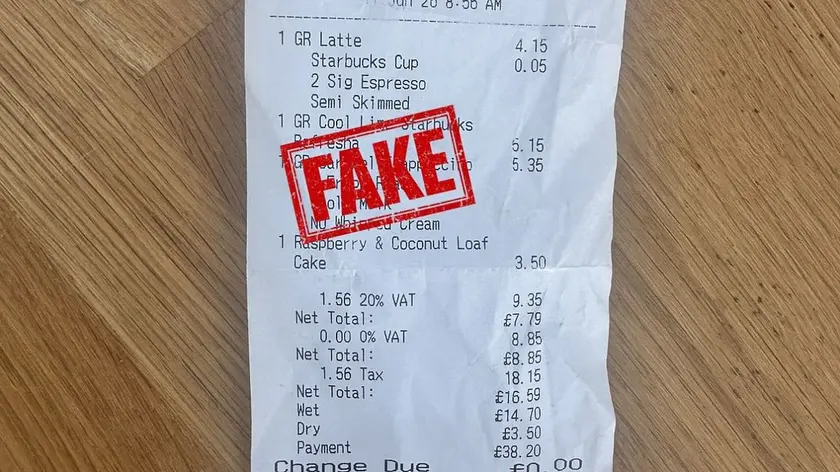T4K3.news
Warning on AI receipts
AI forged receipts could bypass quick approvals; strengthen verification and controls now.

A cybersecurity expert warns that AI chatbots can forge receipts, challenging how companies approve and reimburse expenses.
AI receipts threaten expense controls and internal fraud checks
AI tools are being used to create fake receipts that look like real business transactions, a cybersecurity expert warns. Finance teams often rely on uploaded receipts and quick approvals, making it possible for convincing forgeries to slip through when managers review dozens of claims. In a test, a £38.20 Starbucks receipt was produced that could mislead many readers into believing the purchase happened. The risk grows as AI can generate convincing documents in seconds, while busy staff may miss subtle errors.
Experts urge practical steps to blunt the threat, such as using company credit cards to limit reimbursements, tightening verification rules, and cross-checking vendor details and VAT numbers. They also call for broader awareness training so employees look for telltale signs like misaligned formatting or unusual vendors, and for tighter internal controls to monitor spending in real time.
Key Takeaways
"AI has enabled crime to be sped up and become accessible to many more people."
Jake Moore on the speed and accessibility of AI-enabled fraud
"It's shocking how it looks extremely realistic."
Moore describing fake receipts look-alike quality
"Phishing has come on significantly since email scams first hit inboxes"
Julia O'Toole on AI expanding phishing reach
The incident shows a broader shift in fraud risk: AI lowers the bar for wrongdoing and speeds up the process, turning scams into a routine, low-friction activity. That shift changes how companies must think about controls, audits, and vendor verification. It also highlights a tension between the ease of technology and the need for robust defenses in everyday workflows.
To respond, firms should combine simple fixes with long term policy changes. Practical steps include mandating corporate cards for most purchases, instituting stricter receipt validation, and building automated checks for VAT numbers and vendor legitimacy. At a higher level, regulators and insurers may take renewed interest as AI-enabled fraud becomes harder to spot and more costly to ignore.
Highlights
- Speed is the new vulnerability for finance teams
- A tiny receipt can unlock big losses if unchecked
- Awareness is the first line of defense against AI fraud
- Stay vigilant or the AI forgery will slip through
Financial and policy risk from AI aided receipt fraud
The use of AI to forge receipts could lead to cash losses and increased scrutiny from regulators. Without strong controls, small claims can accumulate into significant budget leakage and erode trust in expense processes. The issue may also draw attention from policymakers and investors as the financial impact and regulatory implications grow.
Staying vigilant means building checks that match the speed of AI fraud.
Enjoyed this? Let your friends know!
Related News

Health warning on AI medical tips

Sam Altman warns AI may eliminate jobs in customer service

OpenAI CEO warns about AI fraud crisis

Top AI firms warn about loss of monitoring ability

News Corp alerts Trump about AI harming his books

Sam Altman warns of impending AI fraud crisis

AI health guidance under scrutiny

Ex-Google exec warns of AI job losses
